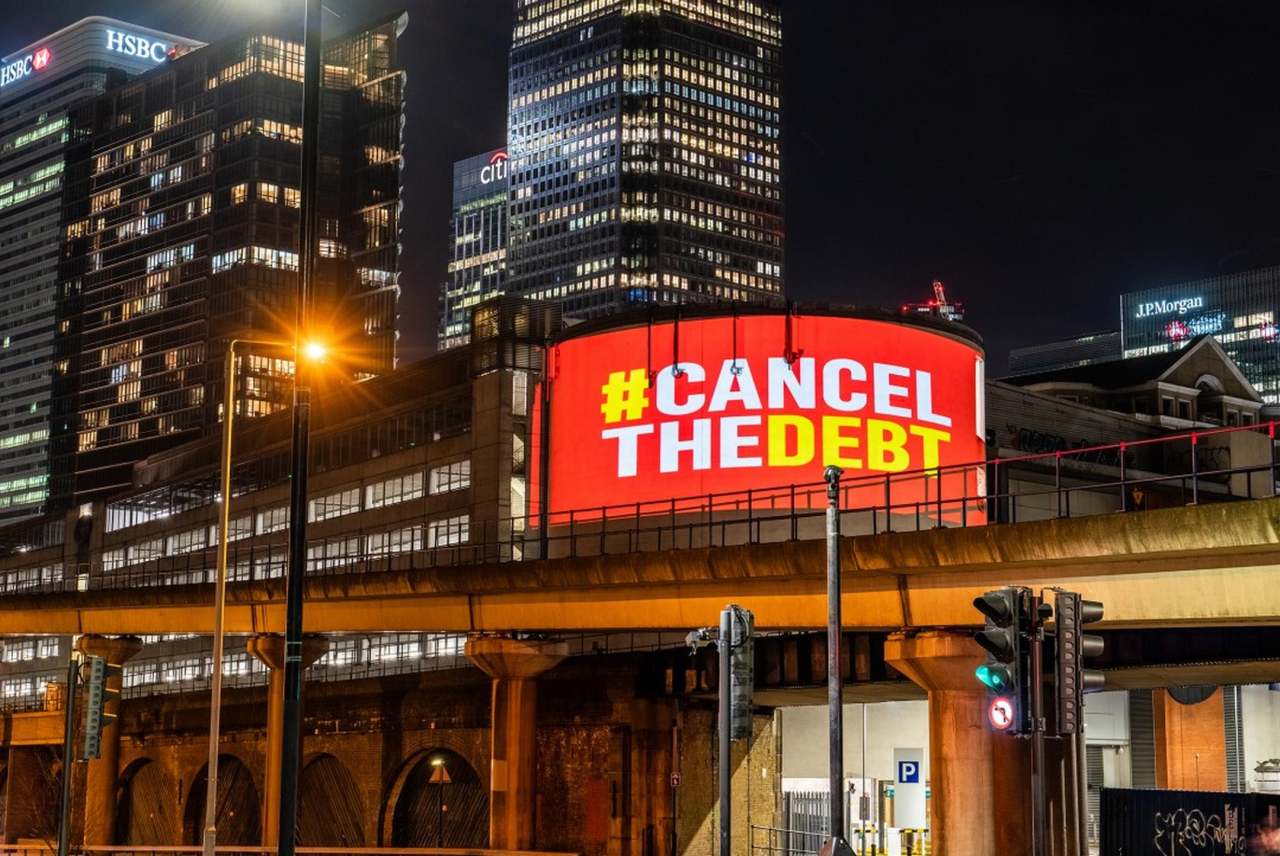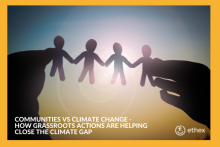Daniel Willis, global finance campaigner at Global Justice Now, explains why it’s so important.
Debt cancellation can free up vital funds for countries to invest in nurses, ventilators and Covid-19 vaccines, while leaders such as Imran Khan (the Prime Minister of Pakistan) say it could also help to tackle climate change. So far, however, the banks have refused.
While progress is being slowly made against the global health emergency prompted by Covid-19 in many wealthier countries, the long-term economic impacts on many low- and middle-income countries are yet to be fully felt.
Predictions suggest that the pandemic could push 150 million people into extreme poverty globally. To ease this impact, many of the richest governments in the world agreed last year to suspend debt repayments for some countries until the end of 2021. But this only applied to the debts owed between governments - not to the debt owed by countries like Zambia, Kenya and Ghana to big banks.
When we say “big banks”, we are talking about some of the richest organisations in the world. HSBC controls assets worth $2.9 trillion, roughly the same value as the combined GDP of all African economies, while BlackRock’s total assets are worth three times that. These banks charge higher rates of interest on loans than governments do, and can be making 75%-250% profit on the money owed to them. The amount of money that African governments will pay banks and speculators this year could fund enough Covid-19 vaccines for the entire continent three times over.
Cancel debt for health and climate justice
Whilst these banks have been making huge profits, many countries across the global south have struggled to fund nurses, ventilators and vaccines in response to the pandemic.
In April 2020, 64 countries were spending more on debt repayments each year than they were on healthcare. Ghana, which owes 59% of its debt to big banks, is spending four times more on external debt payments than it is on public healthcare for its people. This is exactly why governments decided to take action to suspend some debt repayments; but any money that countries save from that initiative will likely be diverted back to the big banks still demanding repayments, and not to funding public health.
Zambia is one of the countries worst affected by this type of debt, with 69% of its external debt owed to private banks and speculators. In late 2020, Zambia requested a suspension of payments from the banks, but they refused. As a result, Zambia defaulted on its debt and is now at risk of being sued in British courts. Civil society leaders in Zambia have highlighted that the need to pay back its debts is leading to cuts to healthcare spending.
Furthermore, Zambia is reliant on the COVAX vaccine donation scheme but has so far only received enough Covid-19 vaccines to protect 0.6% of its population. Cancelling Zambia’s debt will therefore free up vital public finances to invest in healthcare and protect the country’s citizens.
However, healthcare isn’t the only reason why debt cancellation is vital. The Prime Minister of Pakistan, Imran Khan, has argued that “unless there is a debt relief programme for the global south”, countries will be forced to continue using fossil fuels instead of transitioning to clean, green energy.
Similarly, the Prime Minister of Barbados, Mia Mottley, has called for debt cancellation to form part of a plan for a green recovery from Covid-19, arguing that “unprecedented times require unprecedented responses”. Debt relief is not just a matter of ensuring health justice for communities around the world; it would also help in efforts to tackle climate change and reduce emissions globally.
Is debt cancellation fair?
Often we are asked why it is fair that governments should be released from their debts, or why banks should not see a return on their loans. If you purchase things on a credit card or go into your overdraft you’d be expected to pay them off, so why shouldn’t governments?
Well, government debts are not like a credit card. Firstly, banks know the risks that they face when they invest in so-called “developing” markets. They deliberately grow their assets in the global south because these markets are seen as riskier investments, and therefore the banks can charge higher rates of interest. That risk should come with the acceptance that sometimes you will lose out on your investment, but with the balance of power in the international debt system on the side of the banks, they are often protected from losses. This is highly unfair on the communities across the global south who see cuts to social spending and healthcare as a result of their government’s debts.
We also need to be clear that Covid-19 is an exceptional situation that requires an exceptional response. David Malpass, the head of the World Bank, has criticised the banks for trying to “get as many payments from the poorer countries as [they] can during this crisis” and argues that “throughout history there have been occasions where there needs to be deep debt reduction, and this clearly is one of those occasions”.
In previous decades, governments have rejected calls for debt cancellation and have instead enforced austerity on other countries, with disastrous effects that have weakened public services to this day. We can’t let this happen again; it’s time for change.




